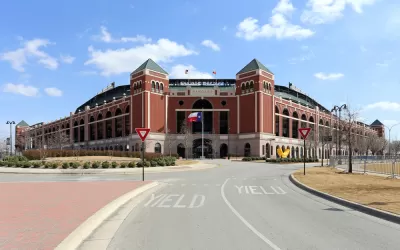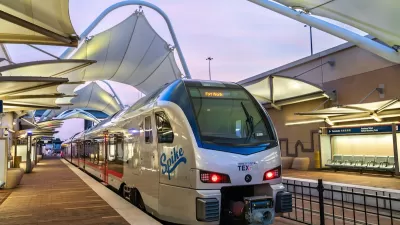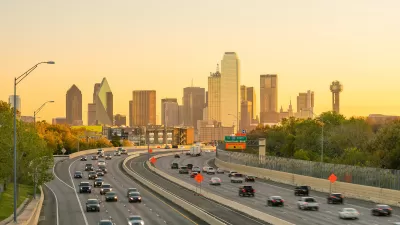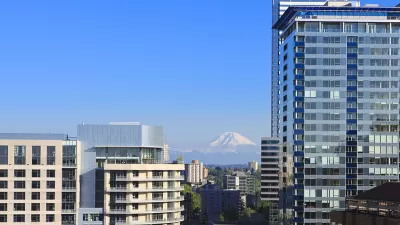A public-private partnership could bring new development to some of the parking lots outside the home of the Texas Rangers. It's not the first grand plan to get floated for the ballpark's ancillary areas.

"The city of Arlington and Texas Rangers are considering collaborating on a $200 million mixed-use development near Globe Life Park," reports Claire Z. Cardona. As currently proposed, the project "would include about 100,000 square feet of restaurant, retail and entertainment space near the Rangers’ stadium," and "a hotel with at least 300 rooms and 35,000 square feet of meeting and convention space."
According to Cardona, the project would require a public-private partnership: "the city would give the Rangers performance-based incentives including income from property, sales, mixed beverage and hotel occupancy tax for 30 years, according to agenda notes. It also would include hotel occupancy and sales tax income from the state for 10 years."
The article neglects to notice a steady stream of media attention devoted to the possibility that the Rangers would move their home ballpark somewhere more urban—like somewhere in the city limits of Dallas. Possible reasons for the team's departure: poor attendance and a lease set to expire in 2024, according to a September editorial by the Fort Worth Star-Telegram.
Back to the development proposal, which would assume the team is staying put—Jeff Mosier followed up the announcement (and pretty renderings!) of the project with a brief history of failed development proposals for the land around the ballpark. The first plan failed in 1991, while a 2004 plan led the team's ownership at the time into bankruptcy.
FULL STORY: Arlington considering $200 million proposed development near Rangers ballpark

Planetizen Federal Action Tracker
A weekly monitor of how Trump’s orders and actions are impacting planners and planning in America.

Restaurant Patios Were a Pandemic Win — Why Were They so Hard to Keep?
Social distancing requirements and changes in travel patterns prompted cities to pilot new uses for street and sidewalk space. Then it got complicated.

Map: Where Senate Republicans Want to Sell Your Public Lands
For public land advocates, the Senate Republicans’ proposal to sell millions of acres of public land in the West is “the biggest fight of their careers.”

Maui's Vacation Rental Debate Turns Ugly
Verbal attacks, misinformation campaigns and fistfights plague a high-stakes debate to convert thousands of vacation rentals into long-term housing.

San Francisco Suspends Traffic Calming Amidst Record Deaths
Citing “a challenging fiscal landscape,” the city will cease the program on the heels of 42 traffic deaths, including 24 pedestrians.

California Homeless Arrests, Citations Spike After Ruling
An investigation reveals that anti-homeless actions increased up to 500% after Grants Pass v. Johnson — even in cities claiming no policy change.
Urban Design for Planners 1: Software Tools
This six-course series explores essential urban design concepts using open source software and equips planners with the tools they need to participate fully in the urban design process.
Planning for Universal Design
Learn the tools for implementing Universal Design in planning regulations.
Heyer Gruel & Associates PA
JM Goldson LLC
Custer County Colorado
City of Camden Redevelopment Agency
City of Astoria
Transportation Research & Education Center (TREC) at Portland State University
Camden Redevelopment Agency
City of Claremont
Municipality of Princeton (NJ)





























